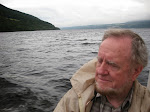As noted in a previous post, with a democratic voting system, a proportional House of Commons elected as voters voted in 2008 would have given Liberal voters 26 more MPs from regions where they were unrepresented or under-represented.
That‘s nine more from the West, ten more from Ontario outside the GTA, and seven more from Quebec outside Montreal. Liberals need the recommendation of the Law Commission of Canada.
Chronic Liberal under-representation
Was this a one-time problem? No, a chronic one.
In 2006, with a democratic voting system Liberal voters would have elected 18 more MPs from regions where they were unrepresented or under-represented. That‘s eight more from the West, five more from southern Ontario outside the GTA, and five more from Quebec outside Montreal.
Chronic federalist under-representation
In 2008, 49 of Quebec’s MPs were Bloc members, and only 26 were federalists (14 Liberals, 10 Conservatives, 1 NDP, and 1 independent). With a democratic voting system in 2008 Quebec voters would have elected 17 more federalists. That‘s 43 federalists (17 Liberals, 16 Conservatives, 8 NDP, 1 Green, 1 independent) and only 32 Bloc MPs.
Was this a one-time problem? Again, not at all.
In 2006, Quebec federalist voters would have elected 17 more MPs: seven Conservatives, six New Democrats, three Greens and one Liberal. And that's chronic. See the Bloc Bonus and other chronic bonuses.
So why don’t more Liberals speak up?
Many Liberal activists in the West like Anne McLellan know all this very well; they've been dealing with it since 1972. So do Liberal activists in Quebec.
So why don’t more Liberal activists promote electoral reform?
Because in 2006 Liberal voters would have elected seven fewer MPs from Toronto and five fewer from Peel/York. Just as, in 2008, Liberal voters would have elected eight fewer MPs from the City of Toronto and four fewer from Peel/York.
Now, the best Toronto Liberal reformers have a national vision.
However, others think 12 fewer Liberal MPs from the GTA are more important than 17 more federalist MPs from Quebec. They think 12 fewer Liberal MPs from the GTA are more important than 18 or 26 more Liberal MPs from regions like Alberta where Liberal voters were unrepresented or under-represented.
Do these Toronto-centred folks really run the Liberal Party?
Perhaps not. When John Gerretsen was elected MPP for Kingston in 1995, he found himself the only Liberal elected between Toronto and Ottawa, facing a very conservative majority government elected by a minority of voters. A familiar position for Ontario Liberals, who had faced fake-majority governments for 42 of the previous 53 years. Proportional representation was in Ontario Liberals' interest, and Gerretsen started working for it. Unfortunately, by 2005 some of them had started to forget this. It is also in Quebec Liberals' interest, where the skewed demographics give the PQ the same bonus the Bloc gets; that's how the PQ won the 1998 election with fewer votes than the Liberals.
Open list
As noted in previous posts, I prefer regional "top-up" MPs elected personally under the "open list" model recommended by the Law Commission of Canada. You would have two votes, and more choice. "Open list" means that voters can vote for whoever they like out of the regional candidates nominated by the party's regional nomination process. Like this ballot, designed by Elections PEI, which PEI voters chose as the winning system in their plebiscite in November 2016. The party would win enough regional "top-up" seats to compensate for the disproportional local results we know all too well. Those regional seats would be filled by the party's regional candidates who got the highest vote on the regional ballot. Each province would keep the same number of MPs it has today.
Friday, July 17, 2009
Subscribe to:
Comments (Atom)
